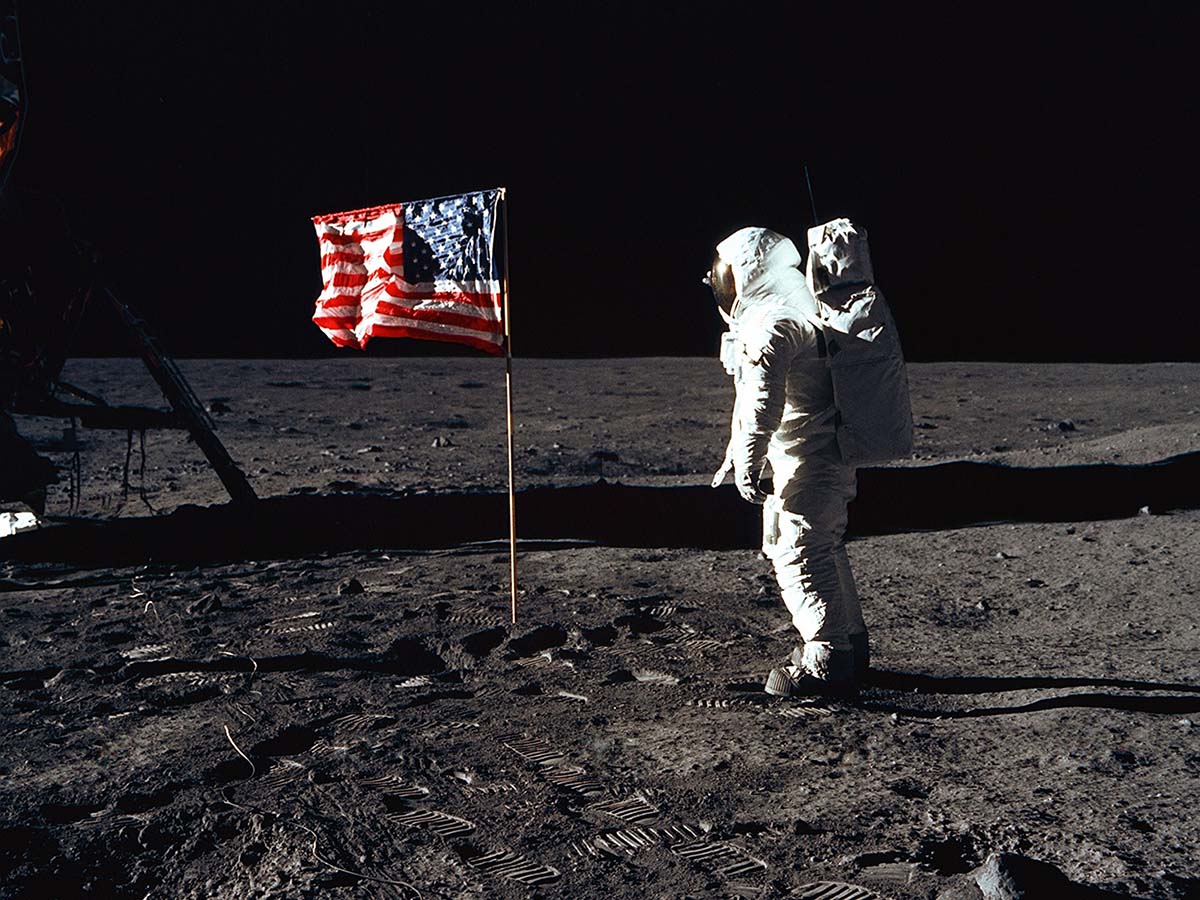
July is one of the hottest months of the year. With the rising temperatures, let’s take a break and look at some cool math stories to combat the summer heat. Take a break and learn some great ways math has affected the month of July. Spark Math by Spark Education is continuing our series, “This Month in Math History: July.” From celebrating independence around the world to walking on new ones, here’s how math helped affect history in July!
July is known for Independence around the world.
In the U.S., July 4th is Independence Day. But celebrating a country’s Independence or a national day of pride isn’t just for the United States. Other countries like Peru, The Netherlands, Egypt, and tons of other countries also celebrate their Independence Day in July. Canada celebrates their national day of pride, or Canada Day, on July 1. Revolutions and independence are studied in history class, but these countries can’t be built without math.
July 4th: Building the United States with Math!
The founding of the United States, just like all countries, had to include building the economy. From creating a money system to figuring out taxes, math makes the world go around. There are so many aspects of the U.S. Government that are based on numbers and math. The number of people in the U.S. House of Representatives and the Electoral College process are both based on population equations. The U.S. founding fathers have used math as a way to develop and build the government. Every 10 years there’s a census to get new population numbers and update congress to be equitable. The building blocks of a government start with the numbers, so many founding fathers are math all-stars.
Founding fathers Alexander Hamilton and Thomas Jefferson were of opposite opinions on almost every issue but agreed on the importance of math in building a strong and successful country. Alexander Hamilton was a bookkeeper at a young age, learning how to handle the finances of businesses. He would go on to create the American financial system with his passion for numbers. Thomas Jefferson used math to influence many aspects of his presidency. From utilizing math’s importance in successful farming and agriculture, to the importance of it in education, math has been part of the foundation of the U.S.
July Math Birthdays
Blaise Pascal July 4, 1646:
Blaise Pascal, a French mathematician, philosopher, and physicist, published his famous work “Essay on Conic Sections.” This work laid the foundation for the study of conic sections and contributed to the development of projective geometry.

July 20th, 1969 Man walks on the moon, by the numbers!
The world watched as Neil Armstrong and Buzz Aldrin landed and walked on the moon. This was the biggest step in space travel to that point and was made possible with math and science. Here are some fun facts about the mission to the moon.
- The moon is over 238,900 milesfrom Earth
- It takes about 3 days to get to the moon
- Because of the moon’s gravity, you weigh 1/6th of what you weigh on Earth. How much do you weigh on the moon?
- Only 12 people have walked on the moon
- Stanley Schmidt, employing work done by mathematician Rudolf Kalman, developed math that helped them get to the moon. “The Schmidt-Kalman Filter” is still used to help navigate plane rides.

July 17th, 1955 Disneyland opens
“The Happiest Place on Earth” Disneyland Opened in July 1955. This was a dream of Disney founder Walt Disney. Tickets only costed $1 on opening day. Just like the price has gone up since the first day, so has the technology of the park and the rides. There are more realistic animatronics on rides and even characters who can blink and smile today. All this technology is only possible using programs created by the engineers at Disney, called “Imagineers”. These “Imagineers” use math and science to build rides fun and safe for everyone. Thousands of people work daily to make Disneyland and other Disney parks work perfectly. From knowing how many Mickey ears are needed in the stores to making sure kids are the right height to be safe on a ride, Disneyland is run by problem solvers.
July is a great month to explore ways to use math every day. Try new recipes with your family for a BBQ or get out of the heat and play some fun online math games. If you want to help fight against learning loss over the summer, Spark Math classes are a great way to keep students’ math skills sharp.
Spark Math uses live teachers and gamified learning to help kids become math all-stars around the world. Sign up for a FREE trial class today!




